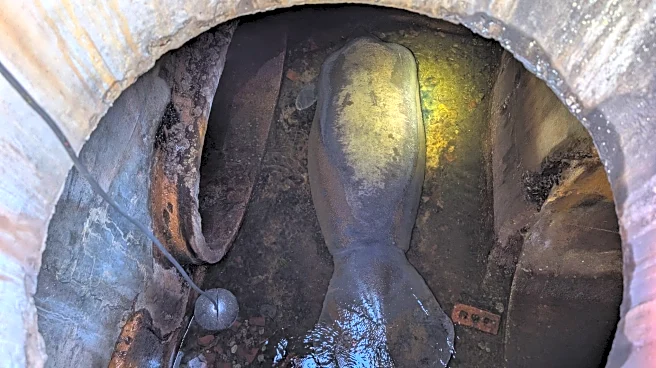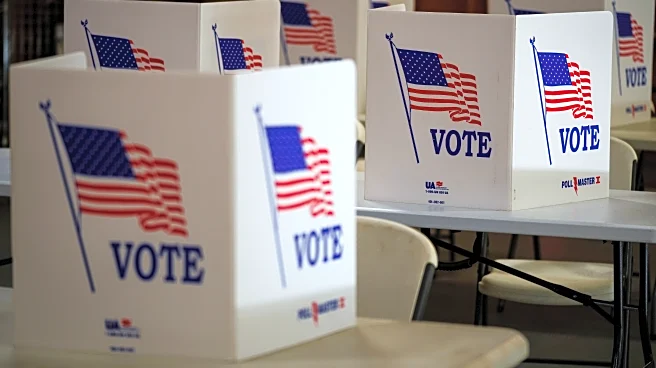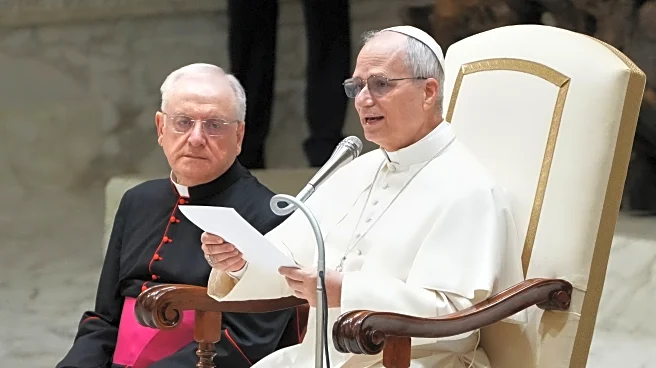What's Happening?
Paul Ingrassia, nominated by President Trump for a top ethics position, has withdrawn his candidacy due to insufficient support from Republican senators. Ingrassia faced criticism over past inflammatory
comments and allegations of inappropriate behavior, including text messages with controversial content. His withdrawal follows growing opposition from Senate Republicans, with key figures expressing their intent to vote against his nomination. The decision was discussed during a lunch with Republican senators, indicating significant concern over his suitability for the role.
Why It's Important?
Ingrassia's withdrawal underscores the challenges faced by controversial nominees in securing political support. The backlash from GOP senators highlights the importance of maintaining ethical standards and public trust in government appointments. This development may influence future nominations, prompting more rigorous vetting processes to avoid similar controversies. The incident also reflects internal divisions within the Republican Party, as members navigate the balance between supporting presidential picks and upholding ethical considerations.
What's Next?
The White House may need to reassess its nomination strategy, considering candidates with less controversial backgrounds to ensure smoother confirmations. Senate Republicans are likely to continue scrutinizing nominees closely, prioritizing candidates who align with ethical standards and party values. This situation may lead to increased dialogue within the party about the criteria for supporting presidential nominations, potentially affecting future appointments and legislative priorities.
Beyond the Headlines
Ingrassia's case highlights broader issues of accountability and transparency in government appointments. The controversy may prompt discussions on the ethical responsibilities of public officials and the impact of personal conduct on professional roles. It also raises questions about the influence of past statements and actions on political careers, emphasizing the need for public figures to maintain integrity and credibility. This incident could contribute to ongoing debates about the role of ethics in politics and governance.










